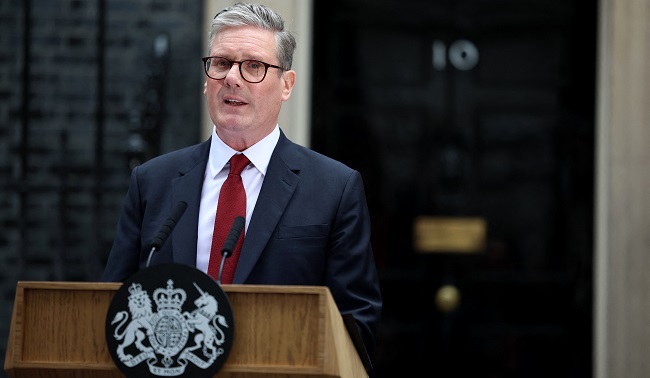UK Prime Minister Keir Starmer passed an early challenge to his leadership on Tuesday when lawmakers approved his contentious proposal to cut fuel benefits for millions of pensioners.
The planned cuts sparked backlash from some Labour MPs and created the first conflict with union supporters since Starmer took office in July.
The controversy underscores the balancing act for Britain’s centre-left leader, who is tasked with repairing an economy he says was damaged by the previous Conservative government while keeping his party’s supporters united.
Labour announced in July that it would means-test the winter fuel allowance, meaning 10 million pensioners would lose their energy bill assistance during the winter months.
Starmer acknowledged that the decision is “unpopular” but argued that “tough choices” are necessary to address a £22 billion ($29 billion) gap in public finances, which Labour attributes to the previous Tory administration.
While Starmer has focused on blaming the Conservatives for the difficult economic situation, Tory MPs claim he is paving the way for future tax hikes.
– ‘Painful’ Budget Ahead –
Starmer has asked the public to endure “short-term pain for long-term gain” but faces increasing pressure to provide a more hopeful vision for the future. Last month, he cautioned that Labour’s upcoming Budget, the first in 14 years, would be “painful.”
On Tuesday, Starmer avoided significant rebellion when MPs voted 348 to 228 against a Conservative motion aimed at blocking the government’s plan to scrap universal winter fuel payments.
Only one Labour MP voted with the opposition, but some Labour lawmakers likely abstained, as the government’s usual majority of 167 was reduced to 120.
“This was not a decision we wanted to make, but we promised to be responsible with taxpayers’ money, and we stand by that,” said Liz Kendall, Work and Pensions Minister, before the vote.
The winter fuel payments, which are worth £300 for some pensioners, were the focus of calls from two major unions for Starmer to reverse the cuts. The Treasury estimates the move will save £1.4 billion annually.
Labour argues that an increase in the full state pension starting next April will more than offset the removal of the fuel benefit, but Unite leader Sharon Graham criticized the move, saying it “robs pensioners” while sparing the wealthiest from any sacrifice.
Although 17 Labour MPs signed a motion to delay the cuts, the party’s strong majority, secured in the sweeping July 4 election win, gives Starmer ample leeway to push through even controversial policies.
Political observers suggest now is the best time for Starmer to implement unpopular measures, with the next election still five years away.
In July, Starmer suspended seven Labour MPs who had supported a motion to eliminate the two-child benefits limit introduced by the previous Conservative government.



